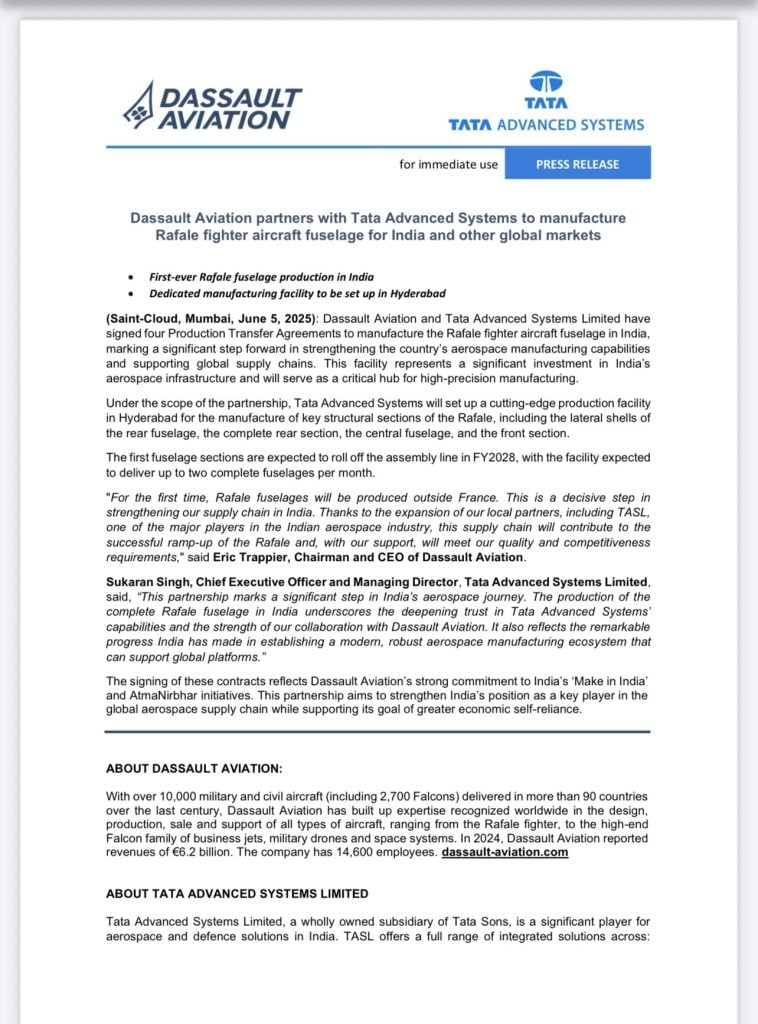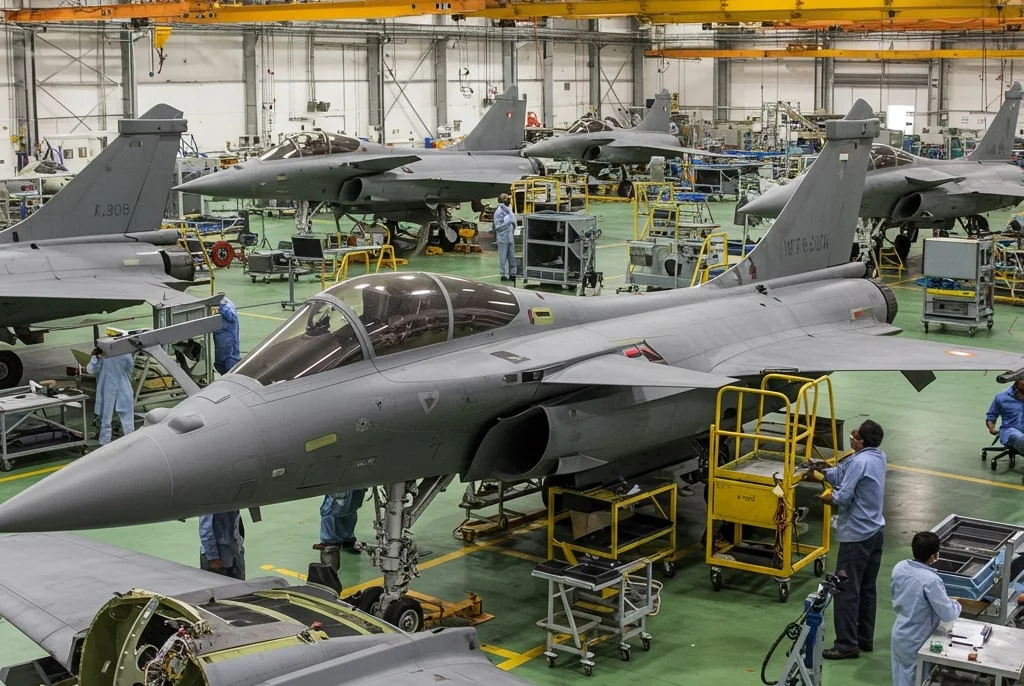In a significant boost to India’s defense manufacturing ambitions, French aerospace giant Dassault Aviation has partnered with Tata Advanced Systems Limited (TASL) to manufacture the fuselage of Rafale fighter jets in Hyderabad. This is the first time the Rafale’s fuselage will be produced outside France, marking a major milestone under India’s “Make in India” initiative.

The partnership was formalized through four Production Transfer Agreements signed on June 5 in Saint-Cloud, France, and Mumbai. The agreements pave the way for a state-of-the-art manufacturing facility in Hyderabad, which will begin production in FY2028. The plant will be responsible for producing critical structural components of the Rafale, including the central fuselage, front section, rear fuselage, and lateral shells.
Dassault Aviation CEO Eric Trappier described the deal as a “decisive step” in reinforcing Dassault’s industrial base in India. He emphasized that the growing strength of Indian partners like TASL will enable the company to scale up production while maintaining high standards of quality and competitiveness.
Sukaran Singh, CEO and Managing Director of TASL, said the project reflects deep international confidence in India’s defense production capabilities. “Manufacturing the full Rafale fuselage in India is a testament to the maturity and strength of our aerospace ecosystem. It also signals the deepening of our trusted partnership with Dassault Aviation,” he stated.
The collaboration builds upon India’s increasing reliance on French military technology. In April 2025, India signed a $7.4 billion deal to procure 26 Rafale jets for its Navy. The Indian Air Force already operates 36 Rafale fighters, which have significantly upgraded the country’s air power. The new Hyderabad facility will serve not just domestic defense needs but will also supply components to global markets, expanding India’s role in the international aerospace industry.
The project is expected to generate around 2,700 direct jobs annually and involve over 50 Indian companies in its supply chain, stimulating innovation and economic growth.
This development comes at a time when India is seeking to diversify away from traditional defense suppliers and assert its position in a geopolitically volatile region, amid rising tensions with China and Pakistan. Dassault Aviation has delivered over 120 Rafales globally, with 70% of its current output destined for exports.
The Indo-French agreement marks a turning point in India’s efforts to achieve strategic autonomy in defense production, showcasing the country’s readiness to move from being a buyer to becoming a global manufacturer of cutting-edge military platforms.













